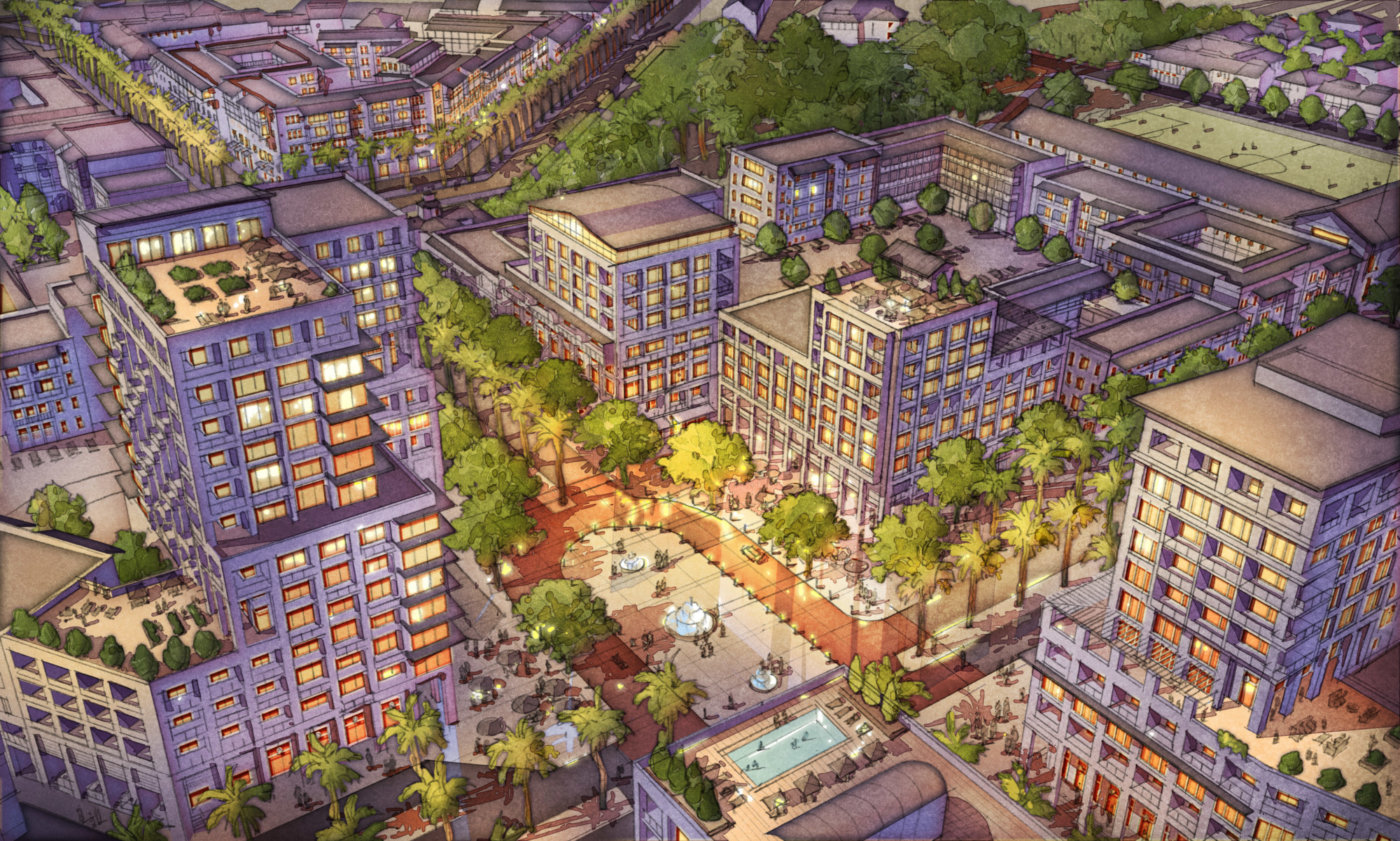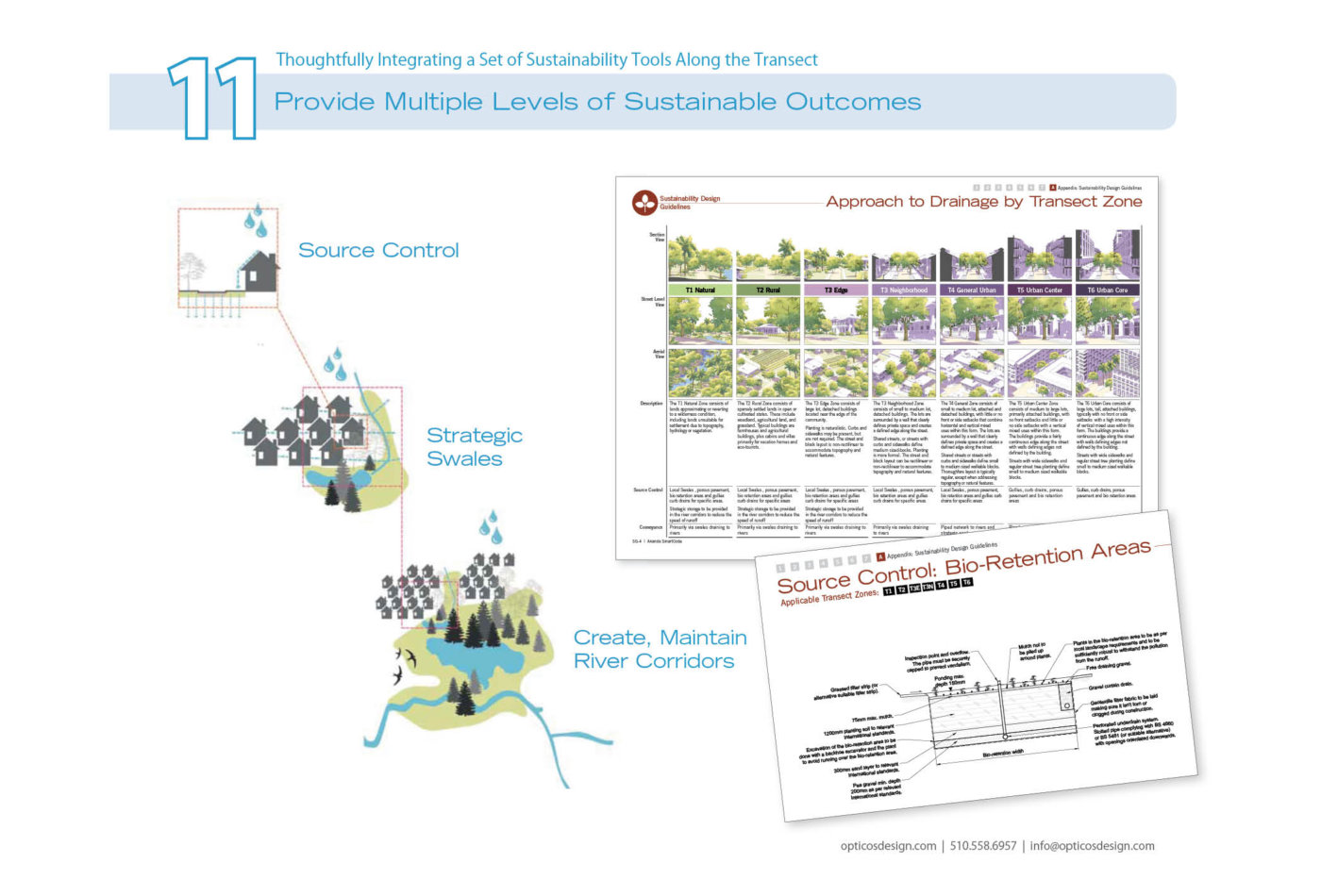-
-
Size
2,500 acres
-
Community Engagement
Enquiry by Design process led by The Prince's Foundation, encompassing an international design team, local stakeholders, and the local government
Sustainable Growth Strategy and Code
Akanda, Gabon, Africa
When the government of Gabon needed a thoughtful plan to ensure a sustainable future for its capital city, it looked to The Prince’s Foundation, Opticos and an international team of experts to craft a master plan and the country’s first development code. Together, the plan and code will guide the development of Akanda, a growing area at the northern edge of Libreville, and one of the country’s fastest-growing areas.
At its core, this project raised a two important questions. First, how do you successfully plan and regulate a sustainable future for a rapidly growing capital city in a developing country? Second, how do you do so in a way that reinforces and respects the local culture and a robust local economy, while improving the quality of life for residents?
To answer this challenge, the government of Gabon engaged The Prince’s Foundation for Building Community and their team to produce a comprehensive master plan for Akanda, including a new Form-Based Code, Tropical Building Design Guidelines, and Sustainability Guidelines.
The Masterplan
The planning process, led by The Prince’s Foundation with Opticos as an urban design consultant, set out to reinforce the natural characteristics of Akanda and to protect the local environment, while thoughtfully accommodating growth. The plan achieves this by creating eight Quartiers, four Faubourgs, and one Centre. Each of these unique communities is centered on a civic facility such as a school or community center, so all residents can walk to this gathering place—a critical feature given less than four percent of locals own a car. The Masterplan also includes the country’s first public transportation network, which will serve to further promote the region’s progress.
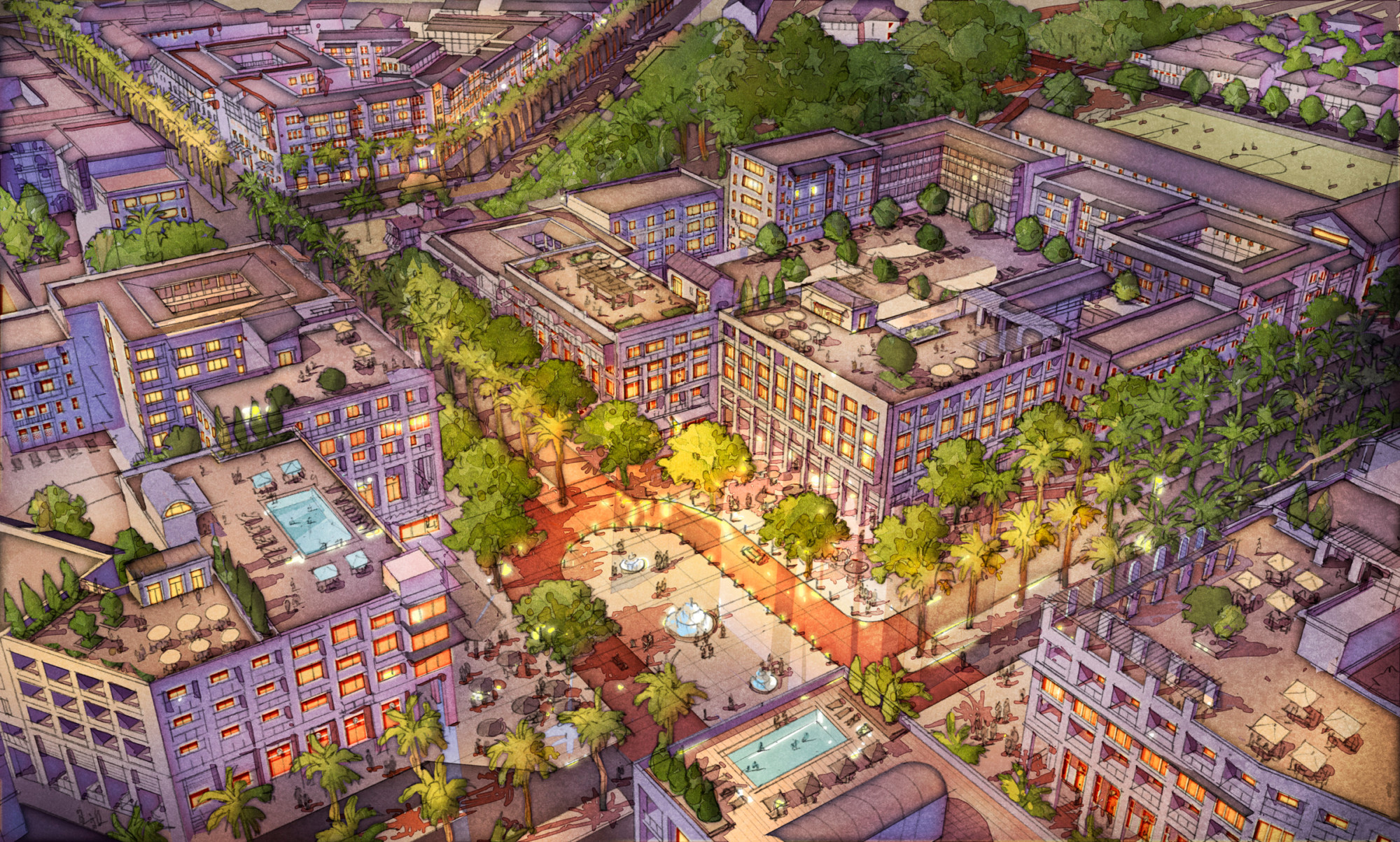
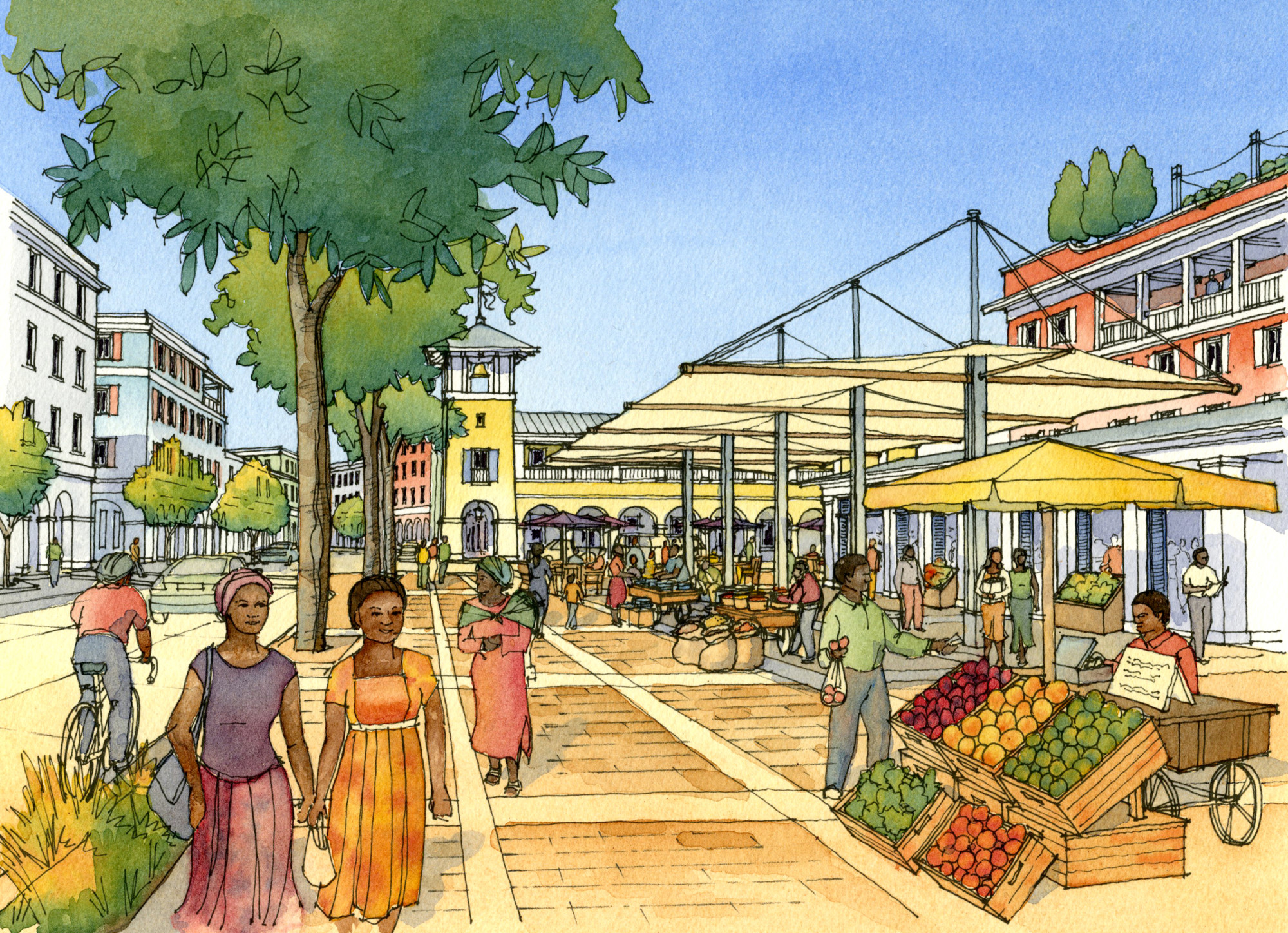
The SmartCode
The country had adopted a model SmartCode a few years before Opticos started work, but it had not been used or mapped. Local planners were struggling to use the code because it had not been calibrated to meet the specific Gabonese cultural or unique physical patterns of a tropical, developing country. The goal for the new effort, led by Opticos, was to deliver a mostly graphic, easy-to-use Form-Based Code that could effectively implement the vision of the Masterplan in a country that had no history of development regulations and little history of land ownership, and to do so in a way that created places that reinforced the cultural and physical patterns of Gabon. The Transect-based SmartCode regulates the placement of Community Types, a regional and local network of streets and civic spaces, and arrangement of blocks and buildings.
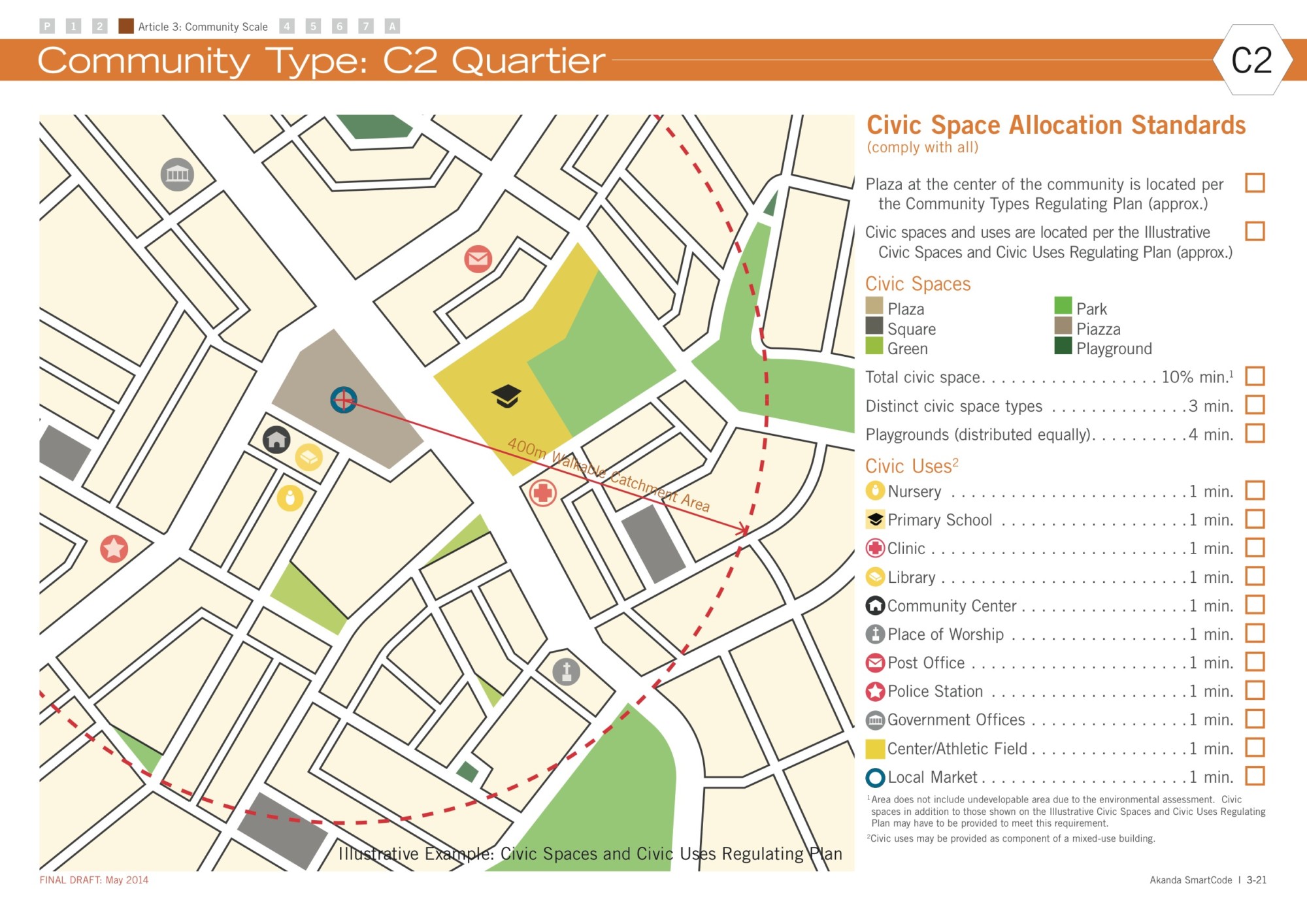
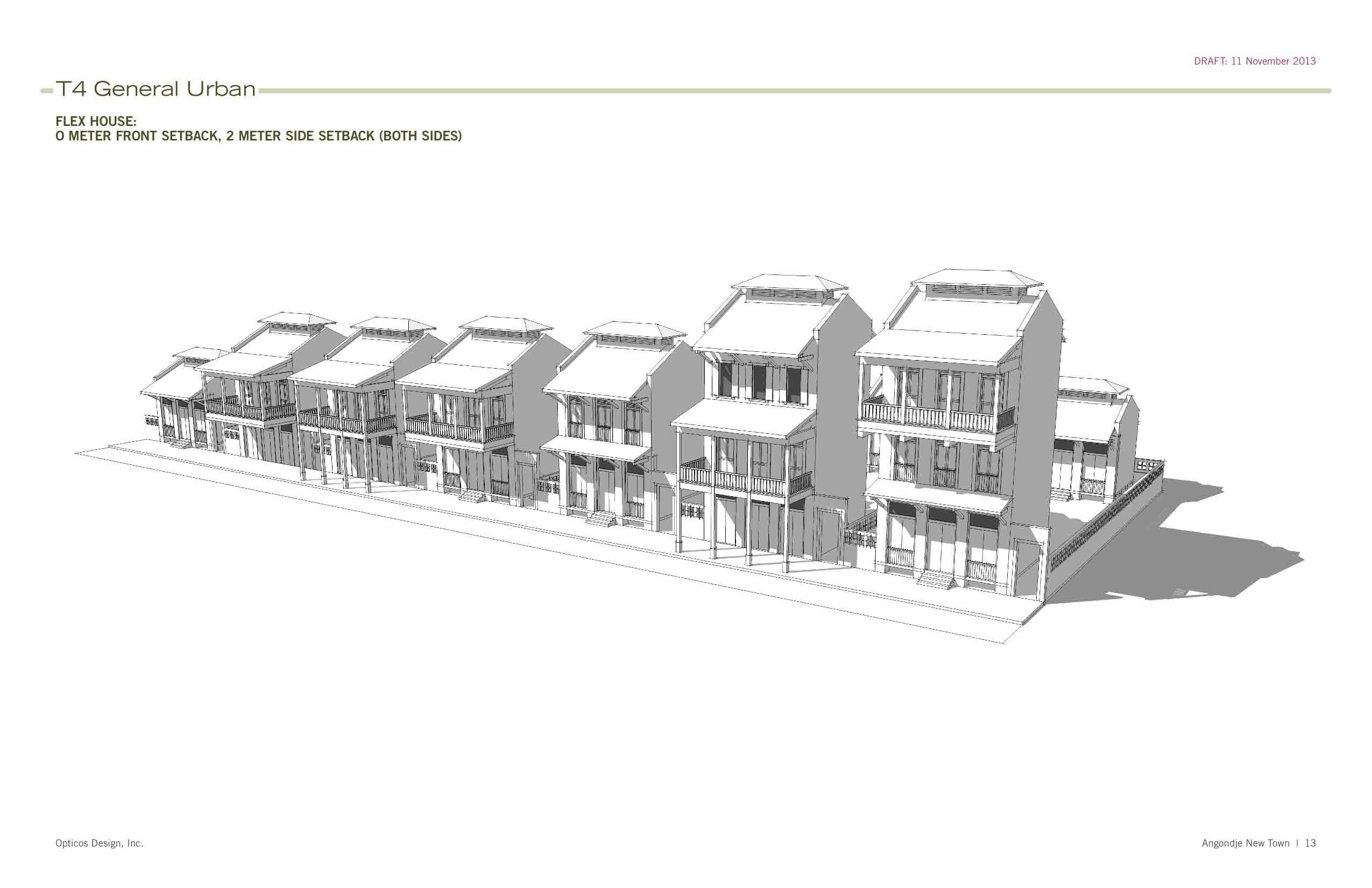
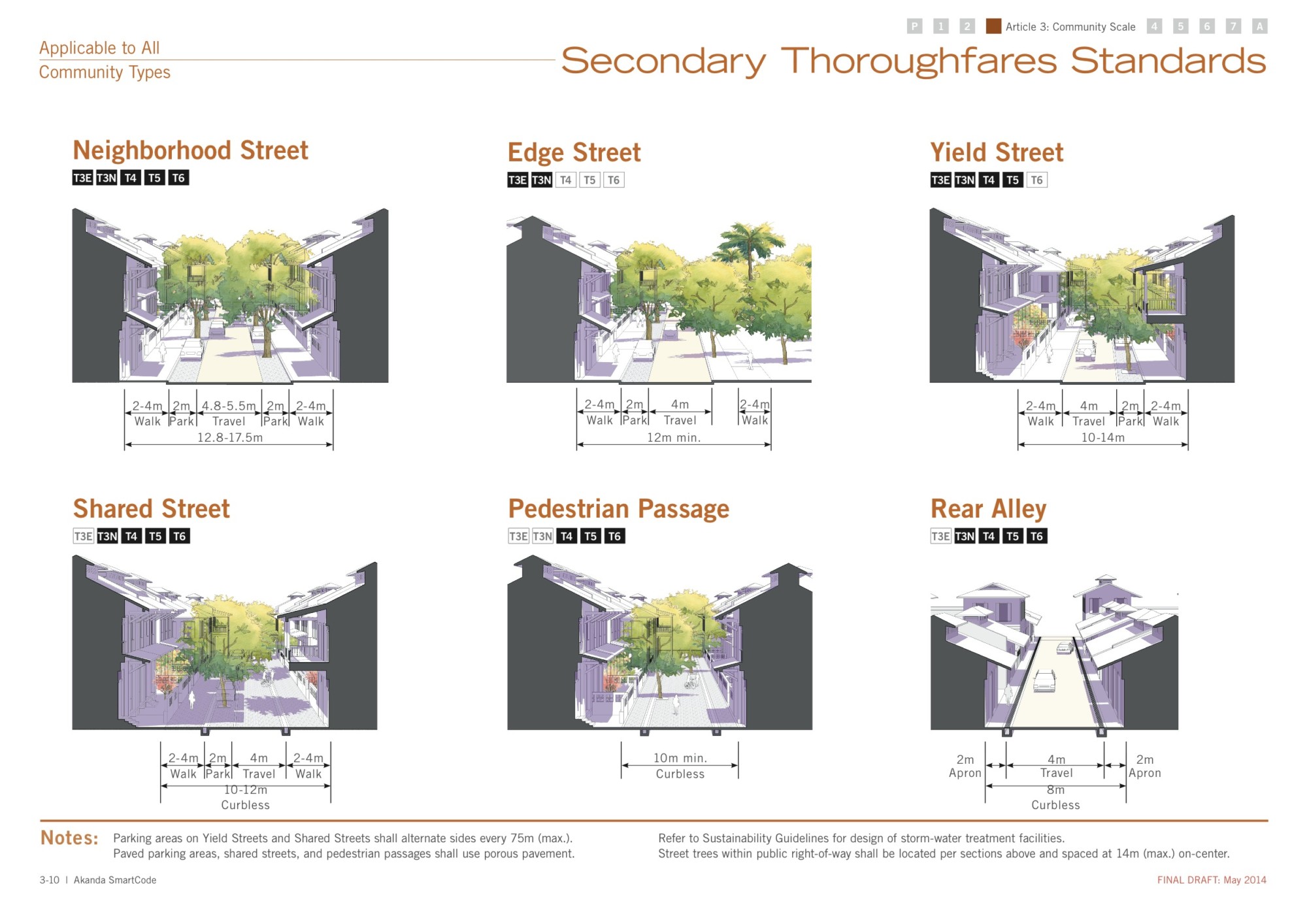
Tropical Building Design Guidelines
Tropical Building Design Guidelines, led by Opticos, ensure that some basic but important principles of tropical building design—such as cross ventilation, airflow, and flooding consideration—are reinforced in future developments. Cresolus Tropical Sustainable Design then created a prefabricated concrete structural system that would enable building construction to occur quickly, standardize and thus improve the quality and safety of construction, and allow locally trained community members to build the buildings or to open locally owned businesses that provided these structural elements.
The goal for the new effort was to deliver a mostly graphic, easy-to-use Form-Based Code that could effectively implement the vision of the Masterplan.
Sustainability Guidelines
The Sustainability Guidelines, led by WSP Parsons Brinckerhoff, propose a set of enduring solutions for creating more sustainable neighborhoods, buildings, and regions. It covers the following areas: Environmental Design with a focus on habitat protection; Neighborhood Design; Mobility and Circulation; Building and Block Energy Design; Water, including stormwater, potable water, and wastewater; and Solid Waste.
The Results
Successful delivery of Akanda as a first-class, sustainable development represents a huge opportunity to connect and enhance Gabon’s rapidly growing and diversifying economy while simultaneously protecting its environment and providing improved livelihoods for its residents. When the plans were adopted in early 2017, the local government took a step into the future, enabling the city to become culturally and environmentally responsive and attractive for robust, long-term economic investment.
Project Team: The Prince’s Foundation (lead), Opticos (urban design and lead of SmartCode and Tropical Building Design Guidelines), Cresolus Tropical Sustainable Design, Town Green and WSP Parsons Brinckerhoff
“I remain impressed with the work of the project consultants in crafting a plan for sustainable development in line with President Bongo’s vision for Gabon. The Masterplan and Smartcode respect the local environment of Akanda while providing a route to growth that helps fulfill the needs of the local people.”
— Stephen Coyle, Directeur de la Planification, SmartCode, Agence Nationale des Grands Travaux, Libreville, Gabon
